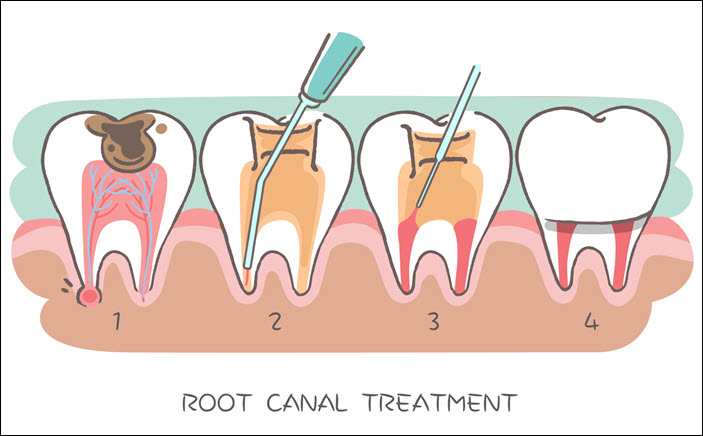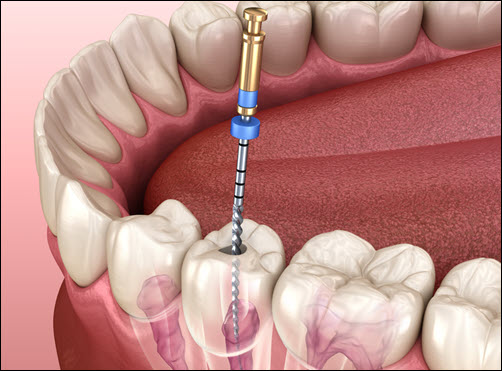Root Canal Recovery Tips
A root canal is a common dental procedure to remove infection inside a tooth. It may be a treatment as well as a preventative measure against future dental infections. Contrary to what one may think, the root canal is not a treatment but is actually part of a tooth.
Teeth contain the crown and the roots. The crown is above the gumline, while the roots attach to the bone. The root canal is a hollow section of the tooth inside the crown and root. It sits primarily above the gum line and contains nerve tissue, blood vessels, and cells known as pulp.
What is a Root Canal?
A dentist or an endodontist performs a root canal. The procedure has three steps and may take one to three sessions.
- Cleaning the root canal
- Filling the root canal
- Adding a crown or filling

And, while many people shudder at the mere thought of a root canal, it is not the painful procedure often believed. Rather, a root canal alleviates pain. However, your dentist at Shpritz Family Dental will administer local anesthesia to ensure a pain-free procedure.
As with any health procedure, complications can occur. Some of these complications include:
- The dentist finds only three root canals in a tooth that should have 4. If a canal is not treated, the infection may not be eradicated and instead spread into the bone.
- The filling material is not placed deep enough into the canal, leaving room for the infection to return.
- The tooth’s root may crack, making it difficult to fill the tooth completely.
If an unanticipated complication occurs, it may be necessary to call your dentist for a follow up visit. To prevent future complications during the recovery process, it is essential that you do your part to follow your dentist’s instructions.
Root Canal Recovery Tips
- Get some rest. Your body heals best when it is resting. So, plan to take a day or two off from work so you can spend some time resting. Be sure to get a pillow that keeps your head elevated to minimize pain. In addition to resting, avoid exercise or strenuous activities for at least 48 hours.
- Don’t eat until the numbness goes away. The great thing is eating ice cream (nothing with nuts or chunks) is highly recommended because the cold helps reduce swelling. But you will need to avoid hot drinks, using a straw, smoking, alcohol, or hard/sticky foods. Great food choices are soft foods high in vitamins A and C, such as eggs, baked sweet potatoes, or fully cooked carrots.
- Gargle with warm salt water daily. This helps prevent infection and swelling while keeping the area clean.
- Take your medicine. Typically, OTC meds are enough, but your dentist may give you a prescription.
- Pay attention to your body. Some residual pain is common. If it lingers for several days, call our office sooner rather than later.
- Brush your teeth, but gently. You don’t want anything to get trapped between your teeth or cause plaque to develop.
If getting a root canal is on your calendar, don’t stress. Our dental team at Shpritz Family Dental can answer your questions and provide the information you need to recover quickly. By following these tips, you can return to your regular routines in no time.




